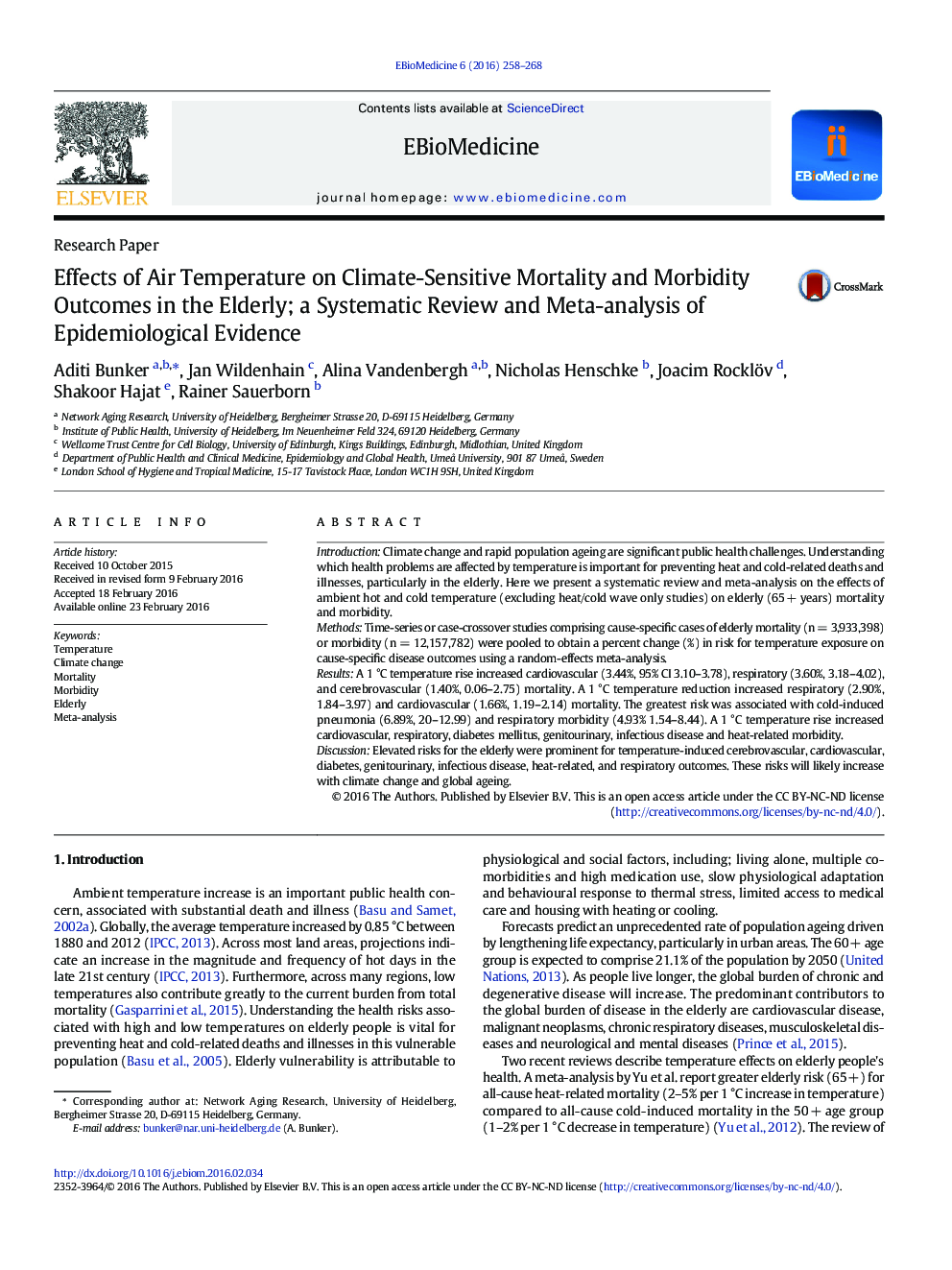| کد مقاله | کد نشریه | سال انتشار | مقاله انگلیسی | نسخه تمام متن |
|---|---|---|---|---|
| 2120685 | 1546893 | 2016 | 11 صفحه PDF | دانلود رایگان |
• Heat and cold exposure elevates elderly risk of cardiovascular and cerebrovascular deaths and respiratory deaths and morbidity.
• Climate change and ageing will likely increase the risk of diabetes, renal, infectious disease and heat-induced morbidity.
• Temperature risks for elderly populations in Africa, Middle East, Asia and South America are under-represented.We applied a rigorous search strategy on three relevant databases following the PRISMA protocol. The search retrieved 18 mortality, and 30 morbidity publications eligible for meta-analysis, representing 3,933,398 deaths and 12,157,782 morbidity cases. Robust risk estimates were calculated for a wide range of temperature-sensitive health outcomes in the elderly. Temperature was found to significantly elevate cerebrovascular, cardiovascular, diabetes, genitourinary, and especially respiratory mortality or morbidity risks in the elderly. This study highlights considerable adverse health risks from temperature exposure in a large vulnerable population and provides impetus for climate change policy to address these risks.
IntroductionClimate change and rapid population ageing are significant public health challenges. Understanding which health problems are affected by temperature is important for preventing heat and cold-related deaths and illnesses, particularly in the elderly. Here we present a systematic review and meta-analysis on the effects of ambient hot and cold temperature (excluding heat/cold wave only studies) on elderly (65 + years) mortality and morbidity.MethodsTime-series or case-crossover studies comprising cause-specific cases of elderly mortality (n = 3,933,398) or morbidity (n = 12,157,782) were pooled to obtain a percent change (%) in risk for temperature exposure on cause-specific disease outcomes using a random-effects meta-analysis.ResultsA 1 °C temperature rise increased cardiovascular (3.44%, 95% CI 3.10–3.78), respiratory (3.60%, 3.18–4.02), and cerebrovascular (1.40%, 0.06–2.75) mortality. A 1 °C temperature reduction increased respiratory (2.90%, 1.84–3.97) and cardiovascular (1.66%, 1.19–2.14) mortality. The greatest risk was associated with cold-induced pneumonia (6.89%, 20–12.99) and respiratory morbidity (4.93% 1.54–8.44). A 1 °C temperature rise increased cardiovascular, respiratory, diabetes mellitus, genitourinary, infectious disease and heat-related morbidity.DiscussionElevated risks for the elderly were prominent for temperature-induced cerebrovascular, cardiovascular, diabetes, genitourinary, infectious disease, heat-related, and respiratory outcomes. These risks will likely increase with climate change and global ageing.
Journal: EBioMedicine - Volume 6, April 2016, Pages 258–268
